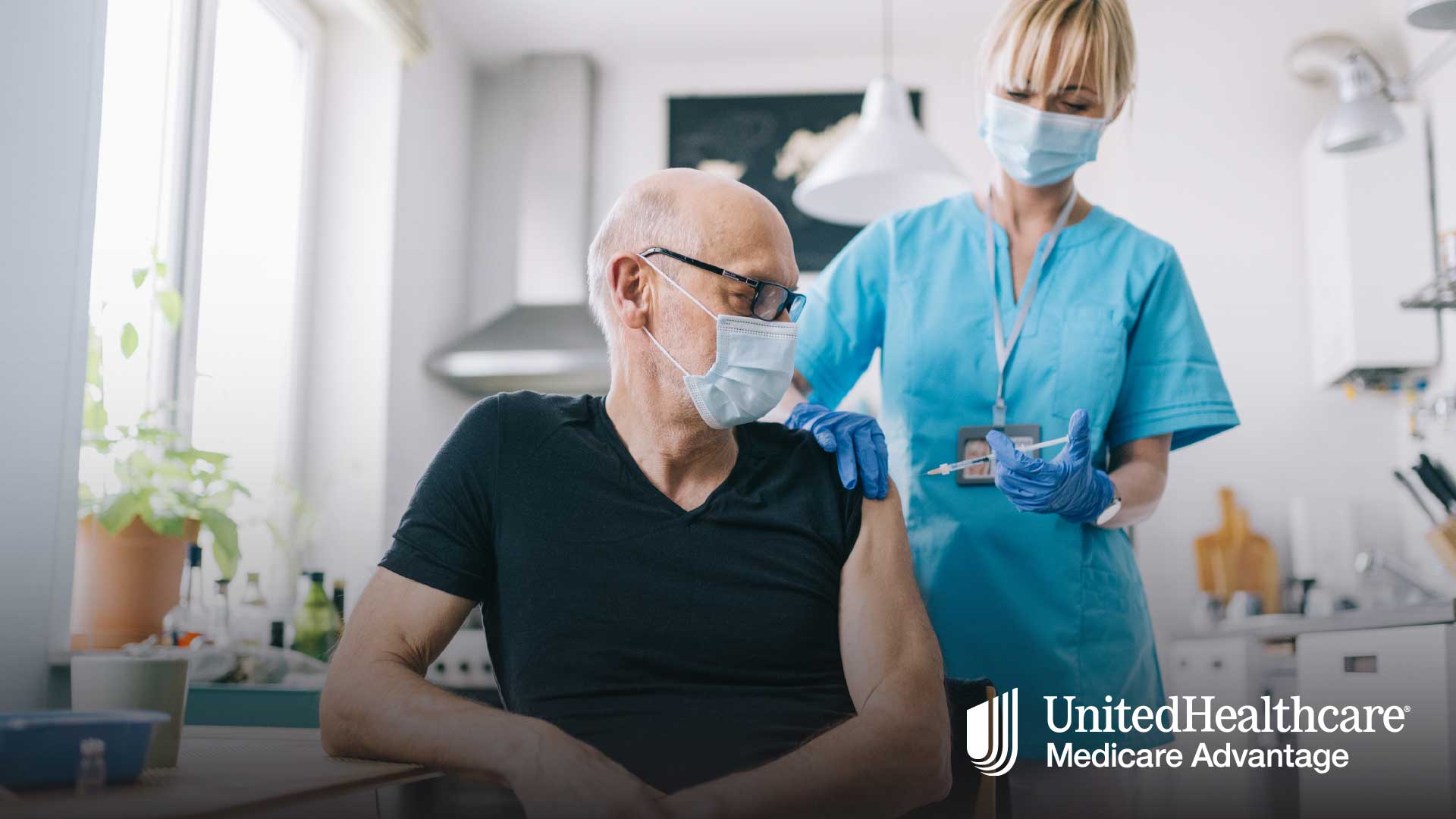| | | | | | | Presented By UnitedHealthcare | | | | Axios Vitals | | By Tina Reed · Nov 17, 2022 | | Good morning, Vitals readers. ✅ ICYMI: The Oregon ballot initiative which would make access to affordable health care a constitutional right has passed. Today's newsletter is 1,003 words, a 4-minute read. | | | | | | 1 big thing: (Virtual) reality show |  | | | Illustration: Shoshana Gordon/Axios | | | | Virtual reality is becoming a real-world health tool for everything from chronic pain and behavioral health problems on Earth to medical training for astronauts in space. What's happening: Like the entire VR industry, health care's version has made significant strides in recent years. - Gone are the cheesy graphics and poor user experience of even just a few years ago, companies told Axios at the HLTH Conference in Las Vegas this week.
- "When people say, 'Yeah, it's been many years since they've tried VR,' it's like, 'No, you haven't tried VR,'" said Luke Farkas, director of brand and marketing at BehaVR, a Kentucky-based company focused on behavioral health.
The big picture: VR in health care is a fast-growing market — particularly as the metaverse evolves — and is projected to expand from about $2.7 billion in 2021 to $9.8 billion by 2027. - It's a game-changer because of the unique way the experience stimulates the brain, said Aaron Gani, CEO of BehaVR.
- "Everything we do on a flat screen — smartphone, laptop, big screen TV, IMAX theater, doesn't matter — it's all sort of the same in that it's not happening to you. You're looking at it," Gani said.
- But VR is immersive, he said: "We can deliberately get you aroused and excited — think exposure therapy. Or it's really easy to get you calmed down."
Between the lines: A growing number of virtual reality companies have taken aim at real-world health issues and are working with major health systems. - Last year, AppliedVR received FDA approval to market its virtual reality system for chronic pain reduction. Another company, XRHealth, offers virtual reality clinics where patients can receive remote care.
- LevelEx, tapped by NASA to help train astronauts handle medical issues on deep space missions, has expanded the use of its platform to create training modules for doctors here on Earth.
- BehaVR this week announced the launch of a mental wellness program based on cognitive behavioral therapy in a collaboration with Sumitomo Pharma, for which it plans to seek FDA clearance as a digital therapeutic. Part of the goal is to help alleviate the shortage of qualified mental health professionals, said CEO Aaron Gani.
What they're saying: "We need force multipliers for clinicians to create efficiency, get people off waitlists, treat more patients faster. That's where digital therapeutics can shine," Gani said. Related: Go deeper |     | | | | | | 2. Burnout plagues younger primary care docs |  Data: The Commonwealth Fund; Chart: Alice Feng/Axios Half of U.S. primary care physicians under the age of 55 say they're burned out and some anticipate leaving the profession in the next three years, per a new survey from the Commonwealth Fund, Axios' Arielle Dreher writes. Why it matters: It's the latest evidence of doctor shortages that could hamper efforts to reduce health disparities and fill gaps in care as the nation emerges from the pandemic. What they found: Nearly two-thirds of young clinicians reported higher rates of emotional distress, but few of them are seeking out help or support. - Just 16% of clinicians under the age of 55 reported seeking help, while 6% of primary care physicians over the age of 55 sought support.
- "Physicians often feel they are the ones who have to show strength in crisis and though they will tell their patients it's not a weakness to seek support, it's not always clear that they feel permission to do that themselves," said David Blumenthal, president of the Commonwealth Fund.
Go deeper: Burnout isn't limited to primary care physicians: A new report from the American Federation of Teachers, which represents nearly 200,000 health care workers, shows how staffing shortages are weighing on nurses and medical workers. |     | | | | | | 3. Medicaid enrollees unprepared for redeterminations |  | | | Illustration: Aïda Amer/Axios | | | | Millions of Medicaid recipients are unaware that states will redetermine their eligibility for the program when the COVID-19 public health emergency ends — and fewer than one third know what other coverage options exist, according to an Urban Institute policy brief, Axios' Sabrina Moreno reports. The big picture: Researchers say the onus is on state Medicaid agencies to increase outreach and simplify renewal processes to avoid unnecessary coverage losses. Be smart: Temporary pandemic-era reforms that Congress passed in 2020 increased the share of federal Medicaid spending if states offered continuous coverage to enrollees, suspending the program's usual churn. - Those policies will end when the public health emergency expires, as soon as April, potentially ushering in a spike in the uninsured rate.
- The loss of Medicaid coverage qualifies people to enroll in the federal marketplace for 2023 coverage past the Jan. 15 deadline.
- But an August report from HHS found most Medicaid enrollees who get stuck in the churn aren't able to enter the marketplace or get employer-based insurance.
Nearly 80% of respondents the Urban Institute surveyed said they weren't told how to navigate the process. - More than 60% overall had heard "nothing at all" about the Medicaid redeterminations.
|     | | | | | | A message from UnitedHealthcare | | Better care with UnitedHealthcare's Medicare Advantage HouseCalls | | |  | | | | Millions of Medicare Advantage seniors rely on UnitedHealthcare's free HouseCalls program, which brings important preventive care visits into their homes. Our HouseCalls program helps keep seniors out of the hospital, and members give the service a 99% satisfaction rating. | | | | | | 4. Data du jour: Mental health needs persist |  Data: American Psychological Association; Chart: Alice Feng/Axios Nearly three years into the pandemic, demand for mental health services is swamping the psychology profession, according to a new report from the American Psychological Association, Sabrina writes. By the numbers: Nearly half of 2,300 psychologists surveyed said they were unable to meet demand for treatment, while 60% said they have no openings for new patients. - Since 2020, diagnoses of trauma, obsessive-compulsive, substance-related and cognitive disorders continue to increase year over year, with more than a quarter of psychologists reporting an increase of patients experiencing persistent and severe mental illness.
- More than a third noted increases among patients who are transgender or have chronic illnesses. Close to 50% reported a jump in teenagers seeking mental health care.
|     | | | | | | 5. Catch up quick | | 👀 After a federal judge allowed UnitedHealth to acquire a treasure trove of health insurance claims, the company said it wouldn't use the data to give itself an edge. A ProPublica examination of company documents suggests otherwise. (ProPublica) 💰 Banks and private equity cash in when patients can't pay their medical bills. (KHN) 👶 U.S. home births reached their highest level in 30 years in 2021. (CNN) 👉 Texas bills introduced this week seek to add criminal penalties to gender-affirming health care. (The Hill) |     | | | | | | A message from UnitedHealthcare | | HouseCalls help prevent health issues among seniors | | |  | | | | UnitedHealthcare's Medicare Advantage HouseCalls provide preventive care visits in the comfort of seniors' own homes. The highly trained nurses are thorough, spending up to an hour with seniors and following up with doctors to address any issues. Learn more. | | | | Thanks for reading, and thanks to senior editor Adriel Bettelheim and copy editor Nick Aspinwall for the edits. Did someone forward this email to you? Here's how to sign up. |  | | Your personal policy analyst is here. | | | | | | Axios thanks our partners for supporting our newsletters. If you're interested in advertising, learn more here.
Sponsorship has no influence on editorial content. Axios, 3100 Clarendon Blvd, Arlington VA 22201 | | | You received this email because you signed up for newsletters from Axios.
Change your preferences or unsubscribe here. | | | Was this email forwarded to you?
Sign up now to get Axios in your inbox. | | | | Follow Axios on social media:    | | | | | |








No comments:
Post a Comment